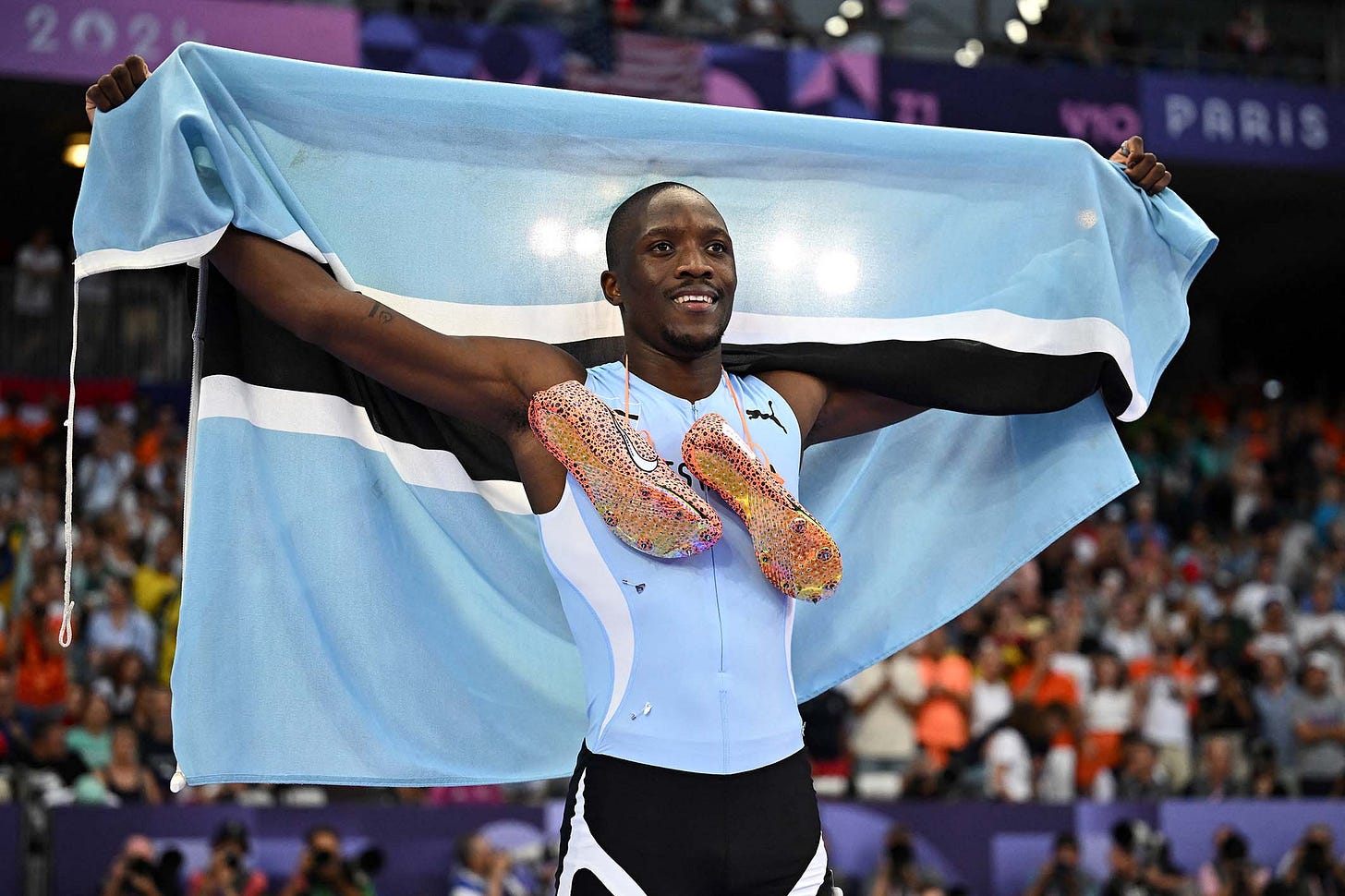Letsile Tebogo is his mother’s son
The runner from Botswana this week became the first African to win gold in the 200m at the Olympics.
Keletso Thobega in Gaborone

Letsile Tebogo was not the prerace favourite for the men’s 200m sprint. In the build-up to the race, the commentators barely mentioned his name – and when they did, they mispronounced it. But one person always knew that he was going to win gold: his mother.
Shortly before her untimely death in May, Seratiwa “Sthando-same” Tebogo – who raised Tebogo single-handedly – said that she wished God would extend her time on earth so that she could see her son clinch an Olympic gold medal. However, He did not grant that wish, and the whole of Botswana mourned with Tebogo as she made her spiritual transition.
In Paris, Tebogo made it clear who he was running for, engraving his mother’s birth date on his running shoes, and painting her initials on his nails. “It’s basically me carrying her through every stride that I take inside the field,” he said, in the aftermath of his stunning victory on Thursday. “She’s watching up there, and she’s the happiest person in the world.”
Botswana, too, is celebrating. No Motswana has previously won an Olympic gold medal. “I have never been so proud to be a Botswana national,” said sports minister Tumiso Rakgare. President Mokgweetsi Masisi announced a half-day national holiday on Friday in Tebogo’s honour. He is being showered with gifts: the government has offered him a four bedroom house in a location of his choosing, while supermarket chain Choppies is handing over a cash prize of a million pula ($74,000).
It took just 19.46 seconds for Tebogo to run from the start to the finish line on Thursday night – a new African record, and the fifth-fastest time in history. But his race really began 21 years ago, in the village of Kanye, in south-east Botswana. He grew up there with his mother and his extended family, as is the norm in Botswana, especially when in unfavourable socioeconomic conditions.
On weekends, the family would walk to their farmlands 20km away, to visit elders and plough the land. This instilled in Tebogo an appreciation for Setswana culture and lifestyle, and he is said to still carry out duties at the cattle post.

In the last media interview before her death, his mother said that he had always been a hyperactive boy, and she tried to channel that energy into sport. He loved playing football, but it was in athletics that he really excelled, even though he had to train in cheap shoes. Tebogo later moved to Gaborone with his mother, and that is where his athletics talent was identified. At the age of 12, he secured a place on the Botswana national team that represented the country at a regional meet in Namibia. He brought home his first-ever major medal – a silver in the 200m.
By now his mother had a corporate job at the Bank of Botswana, and their socioeconomic status had improved. So did his prospects: with access to better facilities, and under the mentorship of coach Kebonyemodisa Mosimanyane, Tebogo just kept getting faster. More medals followed, and records: he set a world junior record at the under-20 world championship in Columbia in the 100m in 2022, and then broke the African record in the 200m last year.
Going to Paris, he was hopeful – even if everyone else was focused on his American rival, Noah Lyles. But Tebogo – and his mother – had a feeling. “I strongly believe this is an African year,” he said in April. “We are there to leap over.”



